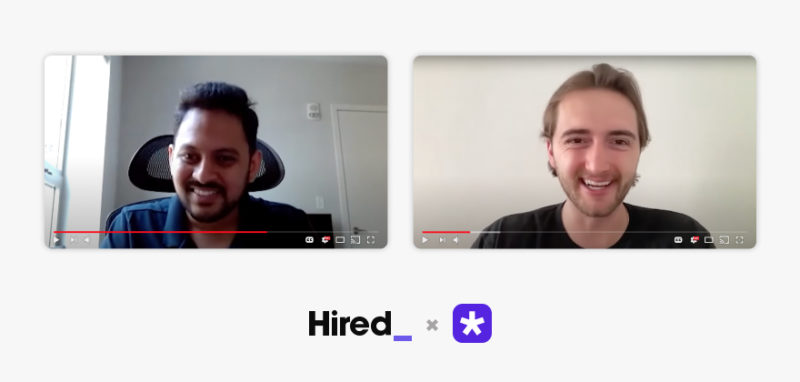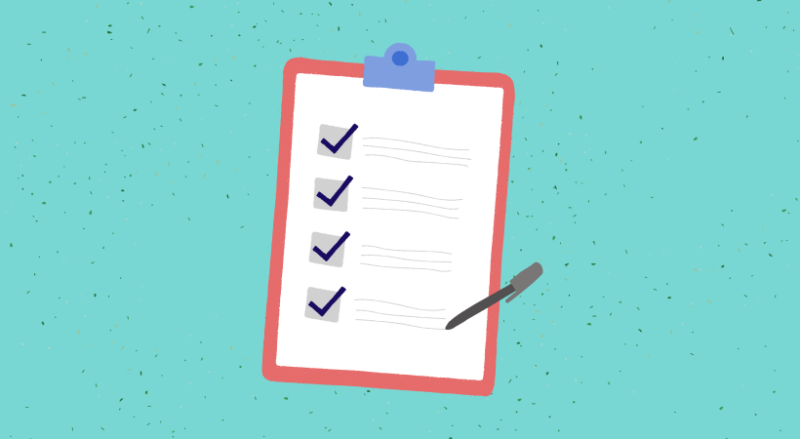
Interviewing After a Layoff? How to Be Confident & Become a Top Candidate
Once you’ve absorbed the news of a layoff, organized your financials, and taken the next steps to kick off your job search, you’re ready. It’s time to begin interviewing after your layoff. Employed but concerned about the stability of your role or company? Use this article series to get organized and feel more prepared for changes.
Win at Interviewing after a LayoffSecuring interviews starts with job applications. Prioritize your job applications at a high volume, but what’s the best way to end with success? According to Pathrise Growth Marketing Associate Alex Macpherson and Career Strategist Mentor Ash Ayvar, it’s best to diversify your application sources by using multiple job boards and sending personalized cold emails to recruiters.
Cold Email Tips and Tricks for Communicating with Hiring Teams from PathriseBefore you start sending out cold emails, there are a few things you need to know:
- Make sure to submit your application alongside or before you send a cold email.
- Focus your cold emailing efforts toward roles you feel passionate about and companies you would be excited to join. Narrow your focus to organizations with less than 500 people. This increases the likelihood someone will read and take action on your message.
- Stick to the weekends or early in the week when sending cold emails – if you send them on a Thursday or Friday, they’re less likely to be read. If you must, use ‘schedule send’ features, like in Gmail.
- It’s ok to send your cold email to multiple people within an organization, but keep the number of contacts to three or four at max. Choose contacts from different teams and divisions, too, or else you risk your email coming off as spammy. Don’t CC – send a separate email to each contact, even if your copy is the same.
Pro Tip:
These emails don’t have to be totally “cold.” Follow the guidance in Chapter 2 of this series, to grow your network through social media and informational interviews. That work may pay off in some “warm” leads on jobs or referrals. Proactive actions like this often reveal roles that haven’t been posted yet. In fact, this work cuts down on the outreach talent acquisition and sourcers need to do – you’re helping them!
It’s worth noting, for technologists and sales or customer experience professionals who join the Hired platform, this type of outreach becomes unnecessary. Hired turns the job search dynamic upside down and once your profile is complete, we promote you to matching employers and roles. Employers search for you, requesting interviews with compensation information upfront. You decide which interviews you wish to accept – you can even pause your profile if you get too many interview requests at once. See how Hired works here.
When Interviewing After a Layoff, Be Authentic and Upfront
Many candidates suffer some anxiety and nervousness about discussing their layoffs in subsequent interviews. Fortunately, you really don’t need to worry so much about it. Be upfront and authentic in how you talk about the situation. Keep your answers focused – there’s no need to go into lots of information about the layoff and waste valuable interview time.
Do acknowledge the layoff and explain it with relevant context. It may be helpful to give specific details. For example, is there a factual number or percentage of how many employees on your team or overall were laid off? Weave it in. Doing so helps your interviewer better understand your situation and illustrates you were one of many.
Was the reduction in force (RIF) part of a merger or acquisition? If the employer is a publicly-traded company, they may have disclosed multiple reasons in shareholder communications or in published articles you could reference. Layoffs happen for a variety of causes and the point is not to dwell on it, especially when such workforce decisions are beyond your control.
In general, employers know layoffs are painful to talk about and will respect the information you choose to provide. Find a positive from the experience and lean into it. It might be how proud you were of your team while there, because XYZ. Or, how the time off allowed you to pursue a certification you didn’t have time for before. Maybe the change inspired you to do something you wouldn’t have done otherwise, like train for a marathon or pivot careers. Perhaps it allowed you time to spend with loved ones when they needed you.
Pro Tip:
As part of your pre-interview research, study any “core values” or mission statements the company has. Do not parrot these, but think about how your experiences, while working and while laid off, align with these ideals and echo them in your answers.
For example, JPMorgan Chase & Co., says on their site, “In a fast-moving and increasingly complex global economy, our success depends on how faithfully we adhere to our core principles: delivering exceptional client service; acting with integrity and responsibility; and supporting the growth of our employees.”
When discussing your career or time during a layoff, could you share examples where you:
- delivered exceptional service, or went above and beyond expectations?
- acted with integrity and responsibility, or did the right thing, even when it may have been difficult?
- supported the growth of employees, or facilitated the development of others, as a volunteer, a coach, or a parent?
Related: How to Answer “Tell Me About Yourself” Interview Question for Tech Talent, Video Interviews 101: How to Impress in the Digital Age
Highlight Your Growth During Employment GapsResume or employment gaps are another area of concern for job seekers following a layoff, no matter how much time has passed. How will you explain that time?
- Focus on how you’ve grown during this period and turn this gap into an asset.
- Highlight what you’ve done to enhance your skills instead of allowing them to fade during this period.
Tell your interviewer about the things you’ve done to improve your skills and build new ones during the layoff period. Whether you took an online course or worked a temporary contract job, it shows you have been proactive. Maybe you volunteered your skills to a local nonprofit.
Employers know layoffs put individuals in less-than-ideal circumstances, so they appreciate an interviewee who has demonstrated commitment to professional growth and development in spite of them.
Related: Flip the Script: How to Handle an Employment Gap on Your Resume
Spotlight Your Past Performance & GrowthShare the value you’ve provided through your work, even on your last team. When you offer achievements and results, this information becomes more impactful to your candidacy than your layoff. Detail the metrics of your work and share highlights of your past projects establishing you as a valuable asset to your team or organization.
Keep Your Head Up – You Can Do ThisThe layoff period is often a humbling time for many. During these days, weeks, or months, you’ve likely done your fair share of reflection on your experience and your career. Share insights about what you learned during this period while highlighting your resilience and unwavering confidence.
No matter what you’ve been through during your layoff, it’s crucial to remain optimistic about the interview process. No matter what role you are interviewing for, character matters. Your positivity in spite of an unfortunate situation reflects best on your character. Resist any urges to speak bitterly about your past employers and focus on the new opportunities ahead of you.
Related: How to Recover After a Bad Interview
Interviewing After a Layoff is for You, TooPost-layoff job seeking can be tricky. While you want to secure a new job as soon as possible, don’t rush yourself too much. Balance this time between searching for new roles and making sure the urge to get hired right away doesn’t lead you to compromise your career goals.
The interview can teach you a lot about your potential new work environment so you can decide if it’s the right fit – both culture-wise and in terms of job security. Here are some example questions to help you elicit this information when interviewing after a layoff:
- Why are you proud to work here?
- Do you feel supported in your career growth and professional development by this organization? How does the organization make you feel that way?
- What’s the process like for providing feedback to a team member?
- Is collaboration encouraged here? If so, how?
- Tell me about a time when you saw the company’s main values in action.
- Has this company ever gone through layoffs in the past? If so, how were they handled?
- Can you tell me about the company’s financial situation? Is it profitable? Are future investments secured?
- The company’s solvency is a legitimate question, especially if you’ve experienced layoffs due to cost-cutting measures. Be respectful, and read the room, but don’t feel like you can’t politely inquire at all. Also, do your homework. Don’t ask questions with answers available to you via Google.
Related: Ace Your Interview & Get Your Questions Answered
Cheers to Your New Role!The discomfort of interviewing after a layoff doesn’t have to derail your future job search. Take the time to process the situation and decide what you want moving forward. Set yourself up for success during your job search by honing your network beforehand. When it’s time for interviews, be confident and highlight the positives you’ve achieved over this time.
Related: Chapter 1: Part of a Layoff? Steps Jobseekers in Tech & Sales Need to Take First
Chapter 2: Laid Off? Next Steps to Find Your Dream Job in Tech or Sales
If you’re ready to join Hired and have employers search for you instead, sign up now!Related blog posts

Ace the Interview & Get Your Questions Answered
Editor’s note: this is Part 2 in our series with our partner, Makers, “Build...

Curious about a Career in DevOps? How to Prep for Strong Interviews
Hired welcomes guest contributor Vyacheslav Nikitan, the Lead DevOps Trainer at NIX United, to...

Evaluate the Job & Negotiate the Job Offer You Deserve
Editor’s note: this is Part 3 in our series with our partner, Makers, “Build...

Engineering Manager or IC? Which Tech Career is Best for Me? (Video)
Have you ever wondered whether to follow an Individual Contributor (IC) path or an Engineering...

How to Answer “Tell Me About Yourself” Interview Question for Tech Talent
How to ace the number one question in interviews for tech roles, like software engineers –...

Starting a New Job? 10 Ways to Set Yourself Up for Success
The First 30 Days are Critical When Starting a New Job Starting a new job is often a mix of...
